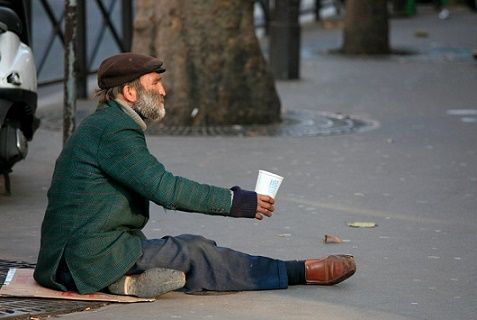One of the many difficulties confronting homeless people is how to get their benefits paid out. Since cheques were abolished at the beginning of 2017, this has become even more of a problem.
Nowadays, in order to get their money, a homeless person needs a bank account and a bank card of some sort, but they are trapped in a ‘Catch 22’ situation; you can’t get a bank account if you don’t have an address – in other words, if you’re homeless.
READ ALSO: Danish homeless now accepting digital payments
Help is at hand, though. The association of Danish municipalities, Kommunernes Landsforening, and the umbrella organisation for banks, Finansdanmark, have come up with a solution, reports DR Nyheder.
“There has been some criticism of the fact that homeless people were unable or had great difficulty in getting a bank account,” said Kenneth Joensen, the head of legal affairs at Finansdanmark.
A little piece of paper
Homeless people have been forced to collect a signed piece of paper from the authorities, which was then delivered to the bank. A municipal employee has then been able to withdraw the money together with the homeless person. However, this has meant that they’ve been carrying large sums of cash, leaving them vulnerable on the streets.
“All of a sudden, they have all their money at once, and perhaps drug pushers have been standing right behind them as they were withdrawing their benefits. There are also a number of examples of the homeless being robbed and their benefits stolen,” revealed Christina Strauss, the head of the Sand homeless organisation.
“We’ve picked up the gauntlet. We want to demonstrate social responsibility – and also for those customers who we don’t earn much from,” added Joensen.
Practical security problems
One of the problems that banks faced was the practical one of keeping the card and PIN code separate.
“For security purposes, the card and code are sent to two different addresses. The homeless person can collect their card at the bank whilst the code is sent to the municipality, so it can be collected at the office. That way, we ensure the homeless person has a secure account.”
Strauss is pleased it is now possible for homeless people to open an account and get a card.
“Denmark has become more digital, so it has been even more of a challenge being homeless. This [initiative from the banks] ensures that the homeless are no longer lagging behind and provides security because you don’t need to have cash on you,” she said.















